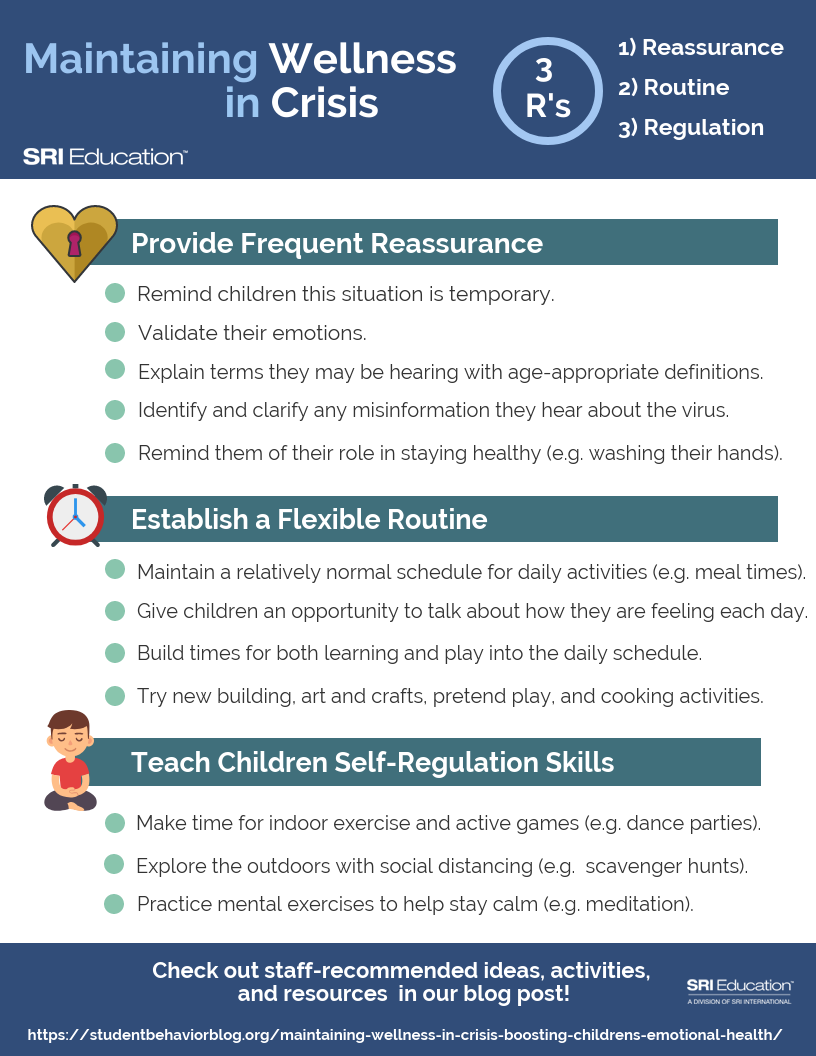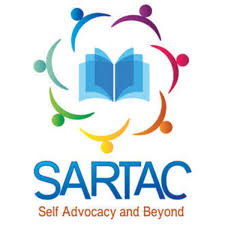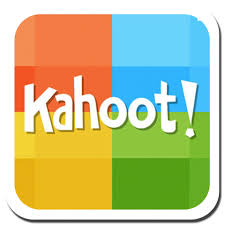In response to the COVID-19 pandemic, the Regional Educational Laboratory (REL) Midwest is featuring a blog series on supporting specific student populations as schools shift to remote learning. In this blog post, they focus on the unique needs of English learner students. https://ies.ed.gov/ncee/edlabs/regions/midwest/blogs/english-learner-remote-learning.aspx
Helping kids stay busy, stimulated, and positive while creating an environment that allows them to feel safe and protected can be challenging. A team of child trauma experts at Child Trends have listed several recommendations for supporting the emotional well-being of children during high stress periods. They highlight “3 R’s” for parents to use as … Continue reading Maintaining wellness in crisis
While the coronavirus pandemic has changed many things around the world, it has not stopped child development. A new series of special episodes of The Brain Architects podcast from the Center on the Developing Child at Harvard University aims to share helpful resources and ideas in support of all those who are caring for children … Continue reading The Brain Architects Podcast
Freckle is an online learning platform that allows students to practice Math and English Language Arts at their own level. Freckle continuously adapts to each student’s individual skills, so each student is getting the appropriate challenge, whether they’re working at, above, or below grade level. Students can access Freckle from home for free using an iPad … Continue reading Freckle individualized online learning
The U.S. Department of Education’s Regional Educational Laboratory Program has put together a set of FAQs to assist schools and districts with their most pressing needs—such as transitioning to online instruction, providing Free and Reduced Lunches, supporting students’ social emotional needs, engaging families, and addressing equity concerns for students with limited access to technology, students … Continue reading Resources for schools and districts responding to the COVID-19 crisis
How do you explain coronavirus to someone with cognitive impairments? A new booklet from the Self-Advocacy Resource and Technical Assistance Center (SARTAC) offers simple wording, lots of graphics illustrating key points and important protective things to know. It’s written by and for people with intellectual and other disabilities. It’s also useful for explaining the virus … Continue reading Plain language information on Coronavirus
Who knew that managing kids’ behavior was such a challenge? The folks at PBIS Apps, of course! They’ve been researching, teaching, and supporting Positive Behavioral Interventions and Supports (PBIS) for decades. Their latest blog post offers insights and experiences from a parent perspective — one month into this “new normal” of working and learning from … Continue reading 4 tips for families trying PBIS at home
Khan Academy is a free resource for students, teachers, and parents. They offer lessons in math, science, and humanities from kindergarten through the early years of college. Students can use their exercises, quizzes, and instructional videos to learn and master skills. They will get immediate feedback and encouragement. During school closures, they are also having daily live … Continue reading Khan Academy
Measures taken to address the spread of COVID-19, from precautionary social distancing to shelter-in-place orders, have dramatically impacted children and their families. In addition to navigating their own stress during a period of uncertainty and change, parents are faced with addressing the questions and concerns of their children, many of whom are spending significant amounts … Continue reading Maintaining wellness in crisis: Boosting children’s emotional health









